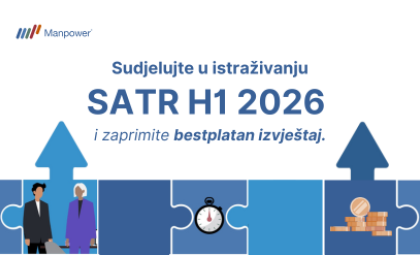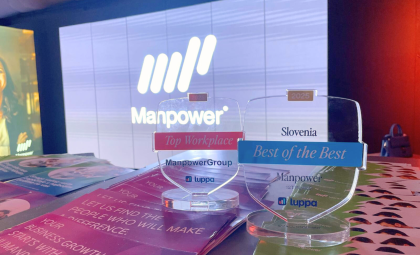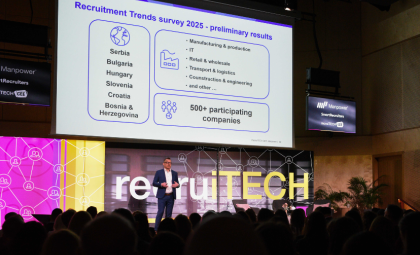
Recruitment Trends 2025: Strategies for successful talent acquisition in SEE
In an increasingly competitive labour market and with a growing talent shortage, employers in Southeast Europe face significant challenges in attracting and retaining top talent.
The Recruitment Trends 2025 report by Manpower SEE presents regional data and actionable strategies based on the insights of over 1100+ employers from six countries – Croatia, Slovenia, Hungary, Serbia, Bulgaria, and Bosnia & Herzegovina.
Key challenges for employers
69% of employers in the region state that the biggest recruitment challenge is the inability to find suitable candidates. In Croatia, this share reaches nearly 70.52 %.
Other major difficulties include an insufficient number of applications for open positions, mismatches between candidate expectations (regarding pay, benefits, and working conditions) and actual employer offers, as well as the challenge of finding niche profiles especially for specialised and technical roles.
Recruitment channels: focus on digital platforms
Online job boards remain the leading source of candidates for 64% of employers in the region, with Croatia standing out with over 61.75 %.
Employee referrals are also proving to be an effective channel with 58% regionally.
LinkedIn job postings, internal referrals, and direct search continue to play a key role in sourcing expert and leadership profiles. Regional data analysis emphasises the importance of aligning channel selection with the specific role, industry, and labour market culture.
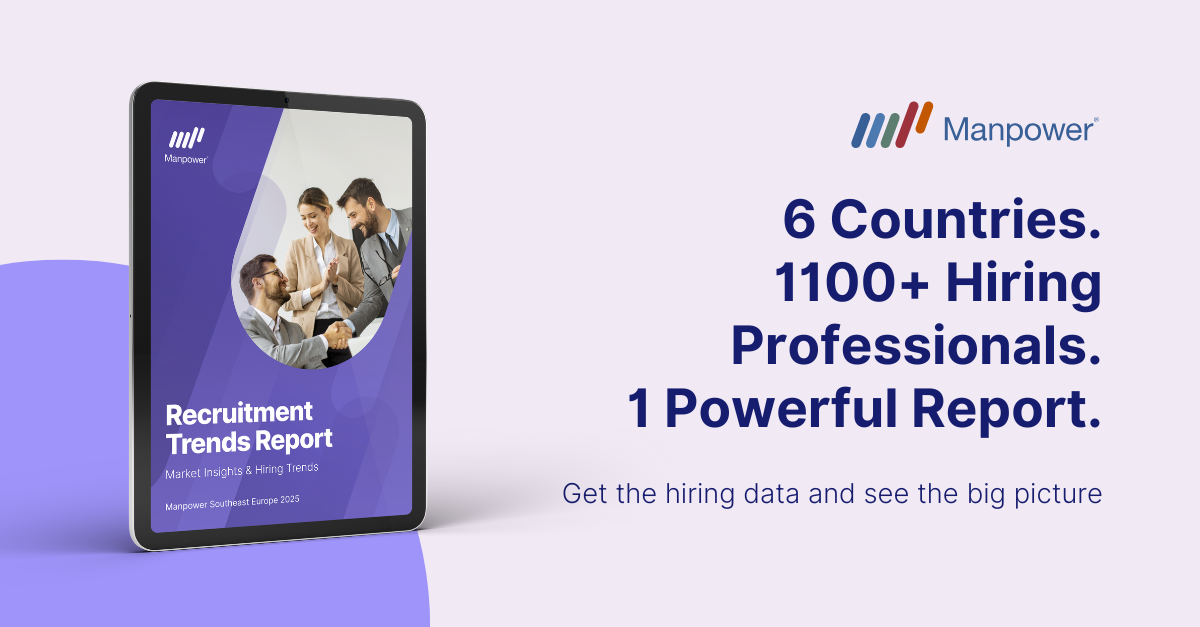
You can ask for your report in the link: https://www.istrazivanje-manpower.com/
Time-to-hire: balancing speed and quality
The average recruitment process in the region takes between 1 and 2 months. In Croatia, the timeframe is similar – 41.04 % of companies fill open positions within two months.
In the IT sector hiring takes the longest with 37% of companies reporting timelines exceeding two months.
Survey data shows that employers are willing to extend the process if it means finding the “right” candidate.
Key factors in hiring decisions
At the regional level, cultural fit and team dynamics are rated as the most important criteria for the final hiring decision (4.19 out of 5).
In Croatia, cultural fit and team dynamics (4.16 out of 5), followed by alignment of salary expectations. The “immediate availability” criterion receives the lowest score (2.90 out of 5), underscoring the preference for quality hiring over a quick start.
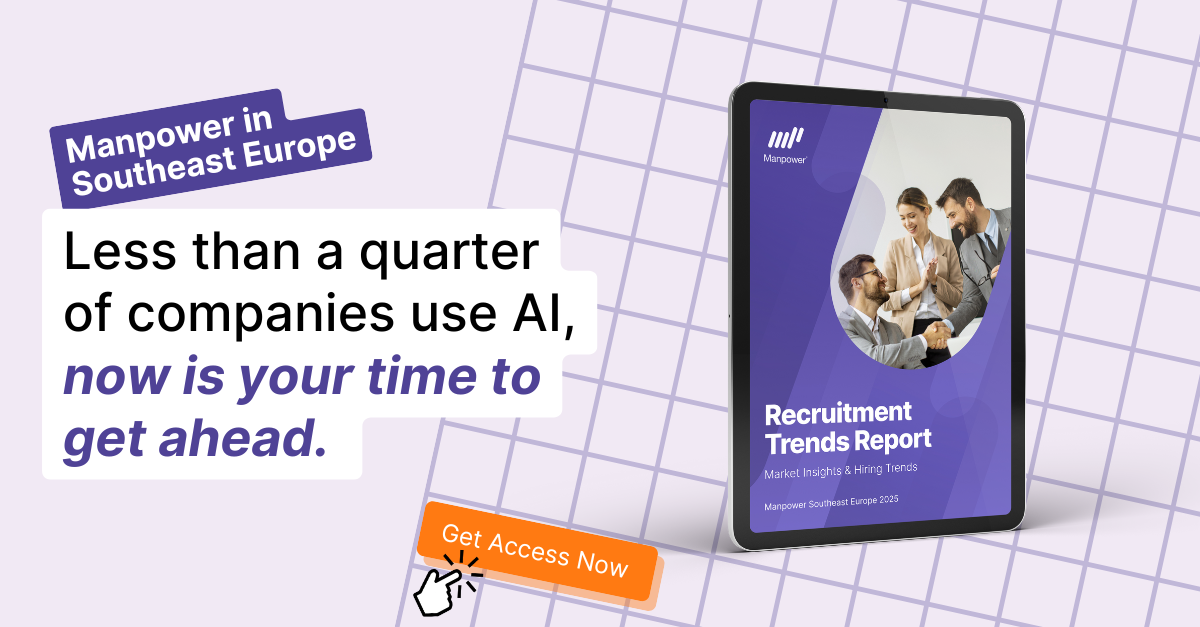
21.47% of employers in the region use AI in HR processes.
AI in recruitment: potential with limited application
Despite growing interest in artificial intelligence, only 21.47% of employers in the region use it in HR processes. In Bulgaria, this percentage is the lowest in the region – just 11.69%.
Recruiters in the country mainly rely on AI for creating job postings and position descriptions (74.07%), while its application in stages such as CV screening (34%), internal analytics, and automated communication remains limited.
The survey results clearly show that recruitment in Southeast Europe is at a crossroads, balancing the need for speed, efficiency, and strategic thinking.
Companies that can adapt their approaches through smart channel selection, timely communication, and assessments based on cultural fit and potential will gain a strategic advantage in attracting and retaining talent.
The full Recruitment Trends 2025 report, is available HERE.
